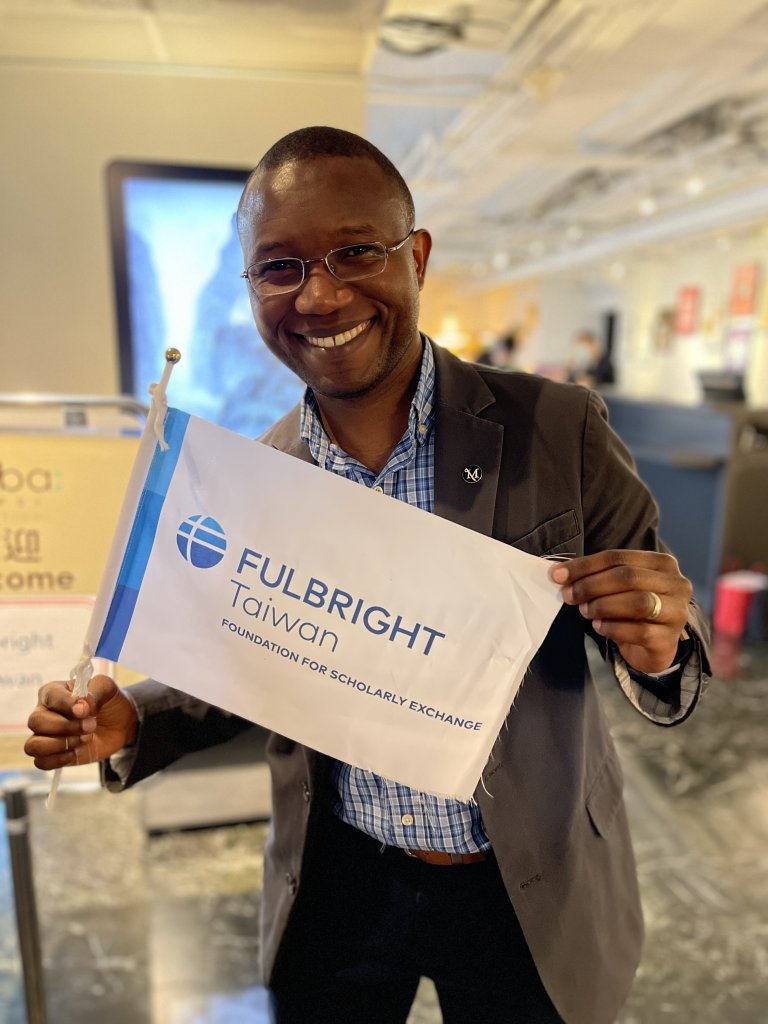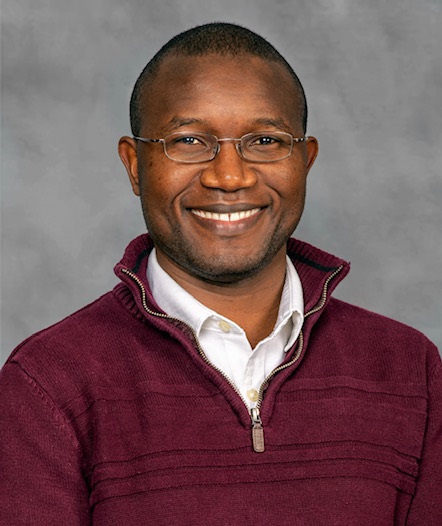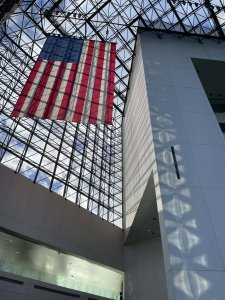As a Fulbright Scholar IEA grantee, I had the privilege of spending two weeks in Taiwan, immersing myself in the country’s rich culture, history, and landscape. The experience was incredibly eye-opening and gave me a deeper understanding of the country’s people and customs and education system. Throughout my time in Taiwan, my cohort had the opportunity to visit various parts of the island including Taipei, Nantou, Taichung, Tainan, and Kaohsiung, and each location provided a unique perspective on Taiwan’s rich history and culture.
My journey began in Taipei, the island’s bustling capital city. I was immediately struck by the city’s vibrant energy and the welcoming nature of its people. In Taipei, we explored the city’s rich history and culture and visited landmarks such as the Lungshan Temple and the Taipei 101. We also had the opportunity to sample some of the city’s famous street food, which was delicious and incredibly diverse.
One of the sites we visited during the trip was the Former British consulate in Kaohsiung. The building, which dates to the 19th century, has been beautifully restored and offers a fascinating glimpse into Taiwan’s history. I was impressed by the building’s design and the level of detail that had gone into the restoration. The visit was an incredibly powerful reminder of the importance of preserving history and cultural heritage.
My time in Taiwan also included a visit to the stunning Sun Moon Lake in Nantou. The lake, which is surrounded by lush forests and rolling hills, is one of the country’s most picturesque landmarks. My group had the opportunity to take a boat ride around the lake and take in the stunning scenery. The visit was a reminder of the natural beauty that Taiwan has to offer and the importance of protecting it for future generations.
Visit to Taipei 101: Taipei 101 is a famous landmark located in the Xinyi District of Taipei, Taiwan. It was once the tallest building in the world until the Burj Khalifa surpassed it. However, it remains a popular tourist attraction in Taiwan. My cohort enjoyed the breathtaking view of Taipei City from the observation deck on the 89th floor. The high-speed elevator ride to the observation deck was quite an experience! Inside Taipei 101, we explored the shopping mall and various dining options on the lower floors. We also walked around and explored local shops, providing a unique shopping experience. The visit provided a remarkable experience, especially for some of us who were interested in architecture and panoramic views of the city.
University visits: Taiwan is home to some of the top universities in Asia, including National Taiwan University, National Cheng Kung University, and National Taipei University of Technology, among others. All the universities we visited have a formidable reputation for research and innovation, attracting students and scholars from all over the world.
Visiting these universities provided my cohort with a unique opportunity to network with academics and researchers from different fields. Attending networking sessions and various meetings during our trip allowed our group to meet people with similar interests and research areas, leading to potential collaborations and partnerships.
In addition to academic connections, visiting Taiwan’s universities also allowed for potential future cultural exchanges. During our visits, it was evident that Taiwan has a rich cultural heritage, and experiencing its art, cuisine, and traditions was a valuable experience. It was encouraging to know that our visits could lead to opportunities for language exchanges, internships, and other cultural activities for students, faculty, and staff. Visiting top universities in Taiwan provided us with a unique opportunity to gain experience from leading academics and researchers while also immersing ourselves in Taiwan’s vibrant culture.
Visit to the Night Markets: One of the highlights of my visit was the opportunity to explore the night markets. As soon as we arrived at the night markets in Taipei, I was overwhelmed by the sights, sounds, and smells around me. The bustling crowds, the vibrant colors of the food stalls, and the aromas of various street foods made an unforgettable experience.
I started my culinary adventure with some traditional Taiwanese snacks like stinky tofu, fried chicken, and bubble tea. The flavors were bold and intense. The vendors were friendly and eager to chat, and I felt like I was getting a real taste of local life.
As we wandered deeper into the markets, I was amazed at the variety of street foods on offer. From savory soups and dumplings to sweet cakes and pastries, there was something for everyone. I tried some Taiwanese fried chicken, fried sweet potato balls, and shaved ice with fresh fruit, and they were all delicious.
Apart from food, the night markets also offered a variety of shopping options, including souvenirs, clothes, and accessories. Our visit to the night markets in Taipei was a wonderful experience that I will always remember. The energy and excitement of the markets, combined with the delicious food and friendly vendors, made it a truly memorable night.
Overall, my time in Taiwan was a truly transformative experience. It opened my eyes to a new culture and way of life, and I came away with a renewed sense of purpose and perspective. I am incredibly appreciative of the opportunity and look forward to sharing my experience with other professionals in the field. I hope that my time in Taiwan will inspire others to explore this incredible part of the world and to learn more about its rich history and culture.
Here are some of the ways I will utilize my Fulbright experience:
- Create international partnerships: I plan to initiate international partnerships between my university and some of the universities we visited in Taiwan. The hope is to set up exchange programs or joint research projects that will benefit both institutions.
- Participate in cultural events and activities: I plan to participate in cultural events and activities in my community to promote cross-cultural understanding. This will include hosting or attending events that highlight Taiwanese culture or organizing events that bring together people from diverse cultural backgrounds.
- Collaborate with local schools: I hope to collaborate with local schools to provide cultural education opportunities. This would include visiting local schools and organizing cultural events for students to learn more about intercultural competences.
- Volunteer in the community: I plan to volunteer in the community to help immigrants and international students adjust to life in the US. This will include volunteering at local community centers or continuing to mentor and support international students at my university.
By utilizing my experience from Taiwan in some of the ways identified above, I hope to help promote cross-cultural understanding and create a more inclusive and welcoming environment for international students and educators at my university and community.
Appreciation: I would like to express my heartfelt appreciation to the wonderful team at Fulbright in Taiwan. Their dedication, passion, and hard work made a significant impact on the success of the trip. Their commitment to service and willingness to go above and beyond the call of duty were admirable. The team demonstrated that teamwork and collaboration are essential to achieving great results, and they did so with grace, professionalism, and kindness.
As a result of their efforts, Fulbright in Taiwan has become a model for other organizations to follow. Their hard work has touched the lives of countless individuals and has made a lasting impact on the cultural and educational landscape of Taiwan, including my cohort.
I would like to thank each member of the team for their outstanding work and for being an inspiration to us all. I am profoundly grateful for everything the team did and continue to do for the Fulbright program and international education and exchange programs. Keep up the great work!

Managing Editor: Chao-Hui Wei (Bonnie) 魏肇慧





